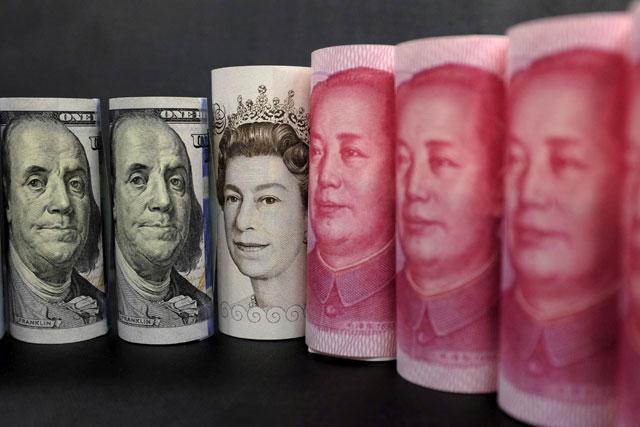You are here
Research body estimates value of China’s ‘shadow banking’ sector at $4.4 trillion
By AFP - May 13,2014 - Last updated at May 13,2014
SHANGHAI — China’s vast “shadow banking” sector is now valued at $4.4 trillion, according to the government’s premier research group the Chinese Academy of Social Sciences (CASS) as it warned of potential risks to the financial system.
Shadow banking in China encompasses a huge network of lending outside formal channels and beyond the reach of regulators, including activities by online finance platforms, credit guarantee companies and microcredit firms.
The system is worth 27 trillion yuan ($4.4 trillion), equivalent to nearly one fifth of the domestic banking sector’s total assets, according to a report by the Institute of Finance and Banking under CASS — China’s highest academic research organisation in the social sciences.
The figure is slightly lower than an earlier estimate by ratings agency Moody’s, which put shadow banking activities at $4.8 trillion in 2012, more than half of the country’s gross domestic product (GDP).
“What matters most is not the scale of the shadow banking system,” CASS said in a statement for the launch of the report provided to AFP on Tuesday.
“Once big risks arise from the shadow banking system, they could rapidly spread to the banking segment and the real economy through the monetary and credit markets, posing systemic financial risks,” it explained.
China’s financial markets were rocked by several debt defaults earlier this year.
In one case, a $160 million investment product structured by Jilin Province Trust, and backed by a coal firm failed to make capital and interest payments.
A $500 million investment product structured by China Credit Trust avoided default in January after an unknown party made good on principal payments to hundreds of investors, though they did not receive pledged interest.
Chinese authorities have shown tolerance towards individual defaults, calling them unavoidable, but have pledged to keep potential risks in check.
Analysts say the defaults could benefit the market in the long term by raising awareness of risk and making investors more selective.
Separately, China’s central bank hinted recently that it was willing to accept some debt defaults in the $1.8 trillion wealth management market, as the world’s second-largest economy struggles to curb bad debts that pose a risk to the financial system.
“Under the premise of preventing systematic risks, allowing some default cases to happen naturally in compliance with market forces will... help rectify behaviours of product issuers and investors, and benefit the healthy development of the wealth management market,” People’s Bank of China Deputy Governor Pan Gongsheng said at a forum in Shanghai.
Pan’s remarks echoed those by Premier Li Keqiang earlier this year after the country’s first-ever default on a domestic corporate bond sparked concerns that other firms could follow suit.
Li said authorities “pay very high attention” to financial and debt risks, but certain individual cases of such defaults were “hardly avoidable”.
China’s wealth management product market ballooned to 11 trillion yuan ($1.8 trillion) in early 2014 from two trillion yuan in 2011, Pan pointe out.
“Guaranteed repayment... although it will ensure short-term stability, won’t help the market to effectively differentiate risks and will eventually lead to accumulated risks,” he said.
In early March, Shanghai-based Chaori Solar Energy Science & Technology Co said it was unable to make bond interest payments of 89.8 million yuan, sending it into a landmark default.
Earlier this year, the domestic financial market was gripped by worries over other financial products issued by trust companies, which have drawn comparisons to the American “junk bonds” of the 1980s.
Authorities have in the past intervened to avoid default risks but are now more willing to accept such incidents, which may ultimately benefit the market by raising awareness of risk and making investors more selective, analysts have said.
Related Articles
China’s local governments have published separate audit reports detailing their combined public debt of $3 trillion for the first time ever, to increase transparency and quell investor concerns.
China’s yuan is a growing force in global finance, more than doubling in use over the past year, according to a new study from the Institute of International Finance (IIF).
LONDON — Global economic policy urgently needs rebalancing, the Bank for International Settlements (BIS) said on Sunday, as the world faces















